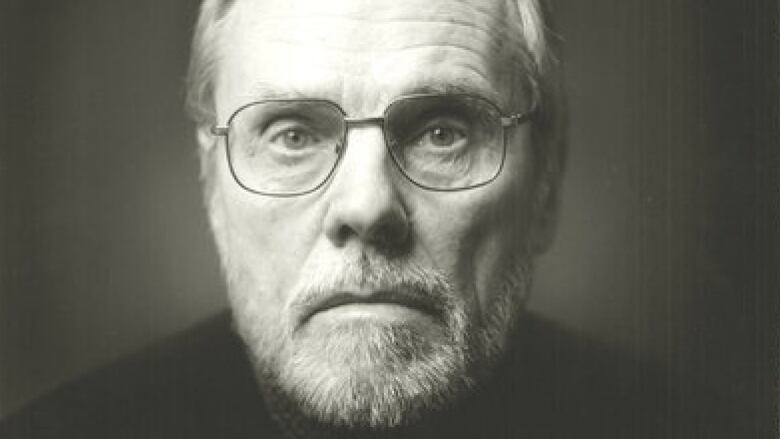Why Rudy Wiebe will never write a funny novel

His first novel in over a decade, Rudy Wiebe's Come Back is a heartwrenching and emotionally honest portrayal of grief, loss and the surprising solace of everyday life. Here, one of Canada's most acclaimed writers answers questions from his literary comrades on unlikely inspiration, primal research and the alternate path his life could have taken.
Below, RudyWiebe answers eight questions submitted by eight of hisfellow writers in the CBC Books Magic 8 Q&A.
1. Charlotte Gill asks,"If you could ghostwrite the biography of a famous person, alive or dead, who would you choose?"
Fyodor Dostoyevsky; largely because then I could talk to him, person to person.
2. Lawrence Hill asks,"Why do funny novels get so little respect in Canada, and have you ever burned with desire to write something so damn funny that readers will fall right out of their chairs? Is that a laudable goal?"
The goal to "write funny" has plenty of merit, but for me, although I can crack jokes with the best of them, I have never written funny novels. It seems to me that laughter is too easy a way to face the "wilderness of this world;" you can too easily laugh yourself past the difficulties. Laughter is not a way to understand; it is, basically, a method of elusion.
3. Heather O'Neill asks,"What's the strangest thing you've done while doing research for a book?"
One night over 40 years ago, while I was researching The Temptations of Big Bear, I camped alone beside the long, narrow Tramping Lakes in prairie Saskatchewan. Suddenly I awoke in the darkness. I was listening to silence, my body stretched out on the ground, and I felt the sound of the buffalo, running.
4. Kim Thuy asks,"Doctors are often the worst patients. Are writers better readers, or worse?"
Writers begin as avid readers what they read inspires them to try to become writers themselves. In that, they are perhaps the finest readers in any possible world. But, as they work and achieve greater competence in they own writing, even as they keep on reading they never stop that! and increasingly appreciate the beauties of the best writing, at the same time they become far more critical, more impatient with what they perceive as "bad" writing. They are more apt to toss books aside after 20 pages. Does that make them worse readers? No I'd say better than ever.
5. Drew Hayden Taylor asks, "Other than writing novels, what other art form (i.e. plays, movies, music, visual art) do you wish you possessed or had a better grasp of?"
Music. All my life I have sung a great deal tenors are always in high demand; I was even offered a scholarship to a classical music academy in Germany just before my first novel was published. I don't regret my decision not to try to build a career in music: I have grown too old to sing now, but writing is still possible.
6. Pasha Malla asks, "Who is one writer, living or dead, you wish could edit or critique your drafts?"
I have an occasional dream of Anton Chekhov even Leo Tolstoy, but I wake up to the impossible reality. But I was blessed: Robert Kroetsch read my fiction not as an editor or in critique, but he read it and we talked.
7. Vincent Lam asks,"Does your personal relationship with your characters change over the course of writing a book? If so, how?"
The relationship changes in the sense that, while at the work of writing, I discover more about the characters; what they can do, what they can be within the stretched limits of my imagination.
8. Zsuzsi Gartner asks,"Have you ever written a sentence you think could save lives?"
Not that I know of. But I do wish I could write such a sentence; there have been times when I've prayed for it.












_(720p).jpg)


 OFFICIAL HD MUSIC VIDEO.jpg)
.jpg)



























































































